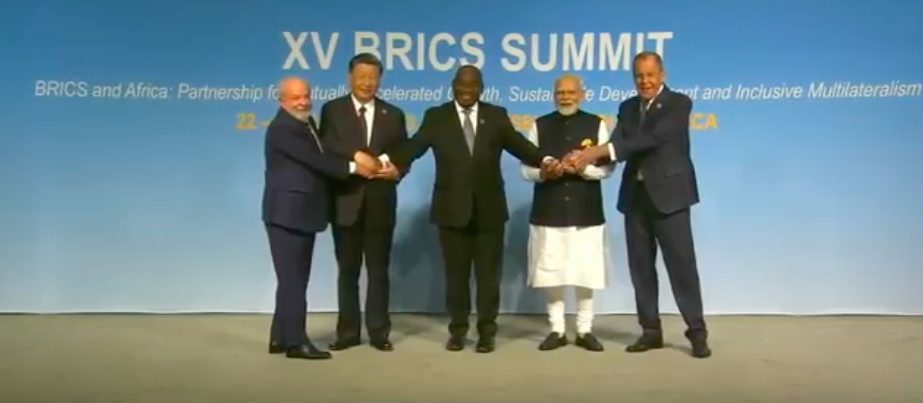The 15th BRICS summit convened in South Africa.
BRICS, the countries representing 40% of the global population, has further expanded with the inclusion of Argentina, Iran, Saudi Arabia, Egypt, Ethiopia and the United Arab Emirates.
The convergence of Western Asia’s rival siblings, namely Egypt, Iran, Saudi Arabia and the United Arab Emirates, under the BRICS umbrella is indicative of that the US’ control over energy centers and corridors will weaken in the coming period.
We can foresee that the next step of BRICS, having dismantled the energy bricks of the wall of US hegemony, will be against the now waning hegemony of the American Dollar.
Undoubtedly, the US will formulate responses to counter these moves.
Ukraine, Taiwan, Syria, and West Africa are the regions where potential US responses can take place.
While BRICS’s expansion will strengthen its impact on international scale, but uncertainties loom regarding the ramifications for its decision-making mechanisms.
Meanwhile, the appointment of former Brazilian President Dilma Rousseff to lead the BRICS Bank highlights a determination to foster a unified financial approach.
BRICS, completing its nascent phase, faces not only colossal opportunities but also lots of questions to answer:
1. How will BRICS position itself in relation to the Western world? Will it adopt a strategy that differentiates Europe from the US and welcomes the membership of European countries like France?
2. Will BRICS integrate military strategies alongside its political and economic ones? Will we witness BRICS involvement in regional and global crises in the near future?
3. Will BRICS continue its expansion? Could such an expansion render the organization a broad yet symbolic institution, lacking substantial decision-making capacity?
4. Given the permanent membership of Russia and China in the United Nations Security Council, will BRICS take steps to influence the structure of the UN in the future?
5. The notion of a common currency among BRICS countries is being discussed. How might such a move impact the economies of member countries?
As we discuss an entity consisting of countries representing over 40% of the global population and continuing to expand, it is evident that more questions can be added on.
In an era where Western hegemony led by the US is collapsing, the rise of the BRICS presents an inevitable shift in fundamental paradigms of international relations.
However, the depth of these changes will depend on the collective action of BRICS members and their commitment to the shared spirit.
Furthermore, BRICS serves as a great test for the harmony and common ground among the deep-rooted civilizations of Asia, Africa, and Latin America.
Humanity continues its voyage in the middle of dark seas.
Will BRICS be a lantern in this challenging voyage, altering the course of history, or will it remain a fond memory like the Bandung?
These questions will be answered by the limits to which the courage of the oppressed countries of the world can reach.

















Leave a Reply